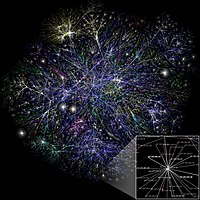Google mistakenly collects private data from Wi-Fi networks
Saturday, May 15, 2010

Google revealed late yesterday that it had mistakenly collected information about Internet sites people had visited on public Wi-Fi networks.
The admission came from Google engineering head Alan Eustace in the form of a blog post on Friday afternoon. In the statement, Google said that it had been unknowingly gathering the personal data for over three years through its Street View photo-mapping feature. The discovery was made during internal investigation resulting from earlier concerns by German regulators over the issue. Two weeks ago, Google told European officials that, while it did collect data from Wi-Fi services for location technologies, it did not save private user data. In yesterday's announcement, however, Google admitted that these claims were actually incorrect.
An estimated 600 gigabytes of personal data had apparently been collected because of a software error from 2006. Google Street View vehicles caught bits of information from unsecured or public Wi-Fi networks in both Europe and the United States, as well as around 30 other countries where Street View is used. Eustace said that Google has "never used that data in any Google products" and that it would stop the collection of Wi-Fi data altogether. He also said that Google was discussing with regulators about how to properly dispose of the data it had accumulated.
This incident is the latest in the Internet privacy debate, following Facebook's move this week to update privacy and security settings for its users' accounts. European officials are expected to move on this issue, which has been controversial to both their citizens and governments for some time. Google had already agreed to take additional privacy measures in Germany last July after the nation's data protection agency raised concerns about Street View.
Hong Kong legislator, Samson Tam, said that Google may have violated Hong Kong's laws on 'interception of communications and surveillance', and was suspected of 'dishonest use of computers'.
Sources
- Stone, Brad. "Google Says It Collected Private Data by Mistake" — The New York Times, May 14, 2010
- Vascellaro, Jessica E.. "Google Says It Mistakenly Collected Data on Web Usage" — The Wall Street Journal, May 14, 2010
- Oreskovic, Alexei. "Whoops! Google says mistakenly got wireless data" — Reuters, May 14, 2010
- "Google grabs personal info off of Wi-Fi networks" — The Associated Press, May 14, 2010
- 馬志剛 and 梁思穎. "Google錯吸港人私隱" — Sing Tao Daily/Yahoo! Hong Kong, May 16, 2010 (Chinese)
External links
